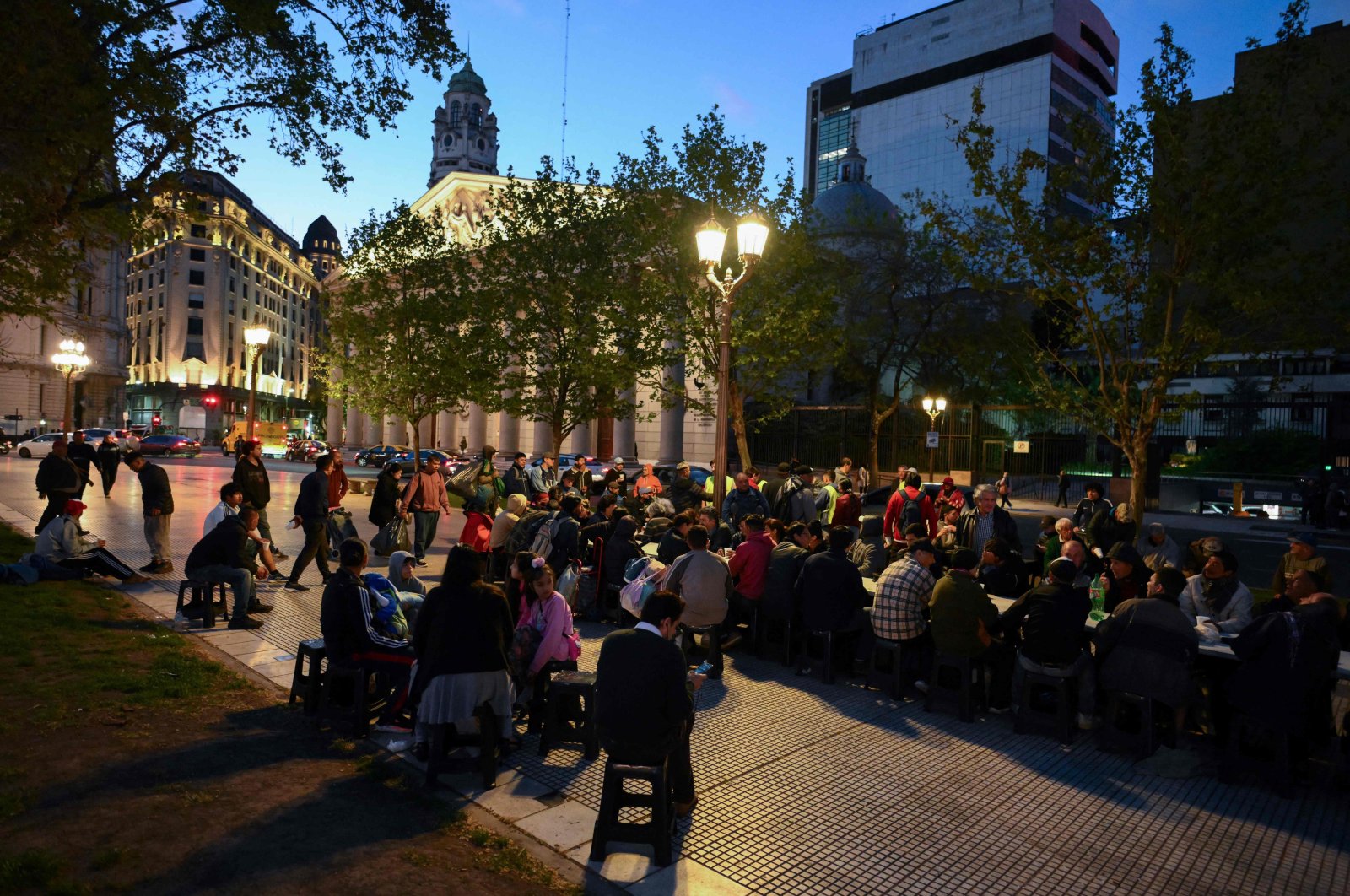
Poverty in Argentina jumped to nearly 53% during the first six months of Javier Milei's presidency, the government statistics agency reported Thursday.
The report for the first half of 2024 showed that 52.9% of Argentines, or 15.7 million people, now live in poverty and nearly one in five are indigent.
The official rate marks a rise from 41.7% and reflects the pain of Argentina's most intense austerity program in recent memory.
The government's finding that another 5.2 million people had so far slipped into poverty during Milei's short tenure marks a setback for the far-right economist even as foreign investors and the International Monetary Fund (IMF) – to which Argentina owes $43 billion – cheer his fiscal shock therapy.
Bracing for negative news hours before the poverty report's release, Milei's spokesperson sought to deflect the blow in a lengthy news conference.
"The government inherited a disastrous situation," Manuel Adorni told reporters, lambasting the decades of unbridled spending under Milei's left-leaning Peronist predecessors.
"They left us on the brink of being a country with essentially all of its inhabitants poor."
Inflation, now running at more than 230% annually – among the worst in the world – played a key role in pushing the half-year poverty rate to the highest level since the country's 2003 financial crisis.
Unlike previous governments that kept consumer spending high at the cost of a massive budget deficit that brought the country infamy for defaulting on its debts, Milei dismantled price controls, cut subsidies on energy and transport and devalued the peso by 54% in December after taking office.
The austerity measures and deregulation have marked a brutal contraction in spending power and dragged the economy deep into recession.
